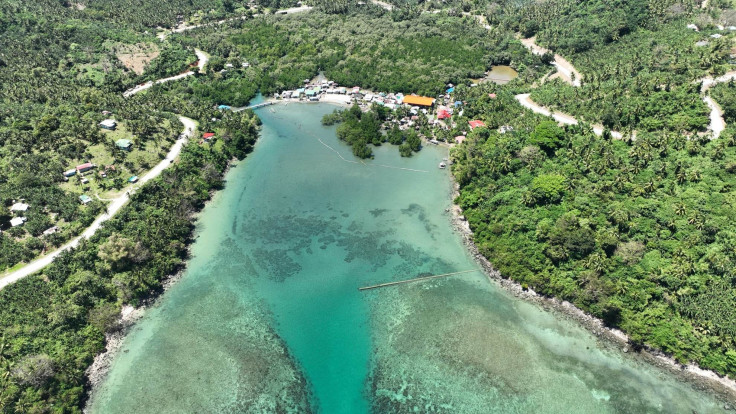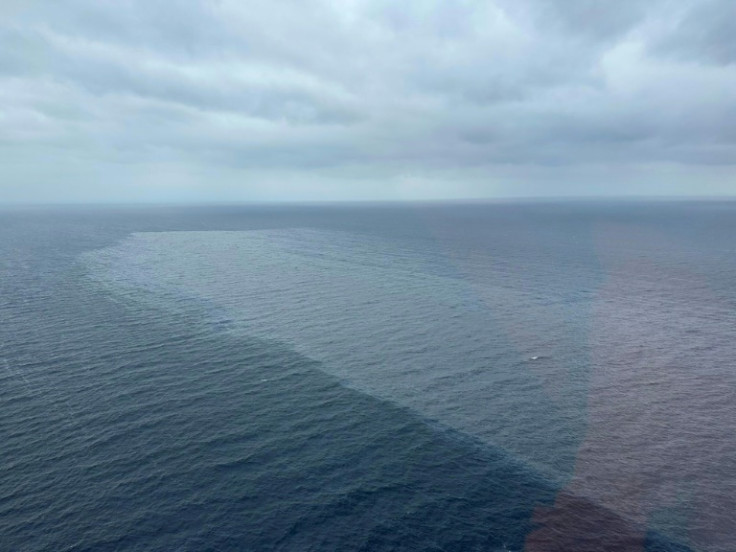Philippines' Mindoro Oil Spill Affects 137,000 People, Effects On Marine Biodiversity To Worsen

KEY POINTS
- Residents of 121 districts in the Philippines' MIMAROPA region and Region 6 were affected by the slick
- Some residents have reported symptoms of cough, dizziness, eye irritation and fever
- The oil spill was brought by the sinking of a tanker carrying 800,000 liters of industrial fuel oil
The oil spill in Oriental Mindoro, Philippines, has affected 137,000 people in coastal communities, damaging the country's marine biodiversity and locals' livelihoods.
In a statement Saturday, the country's Department of Social Welfare and Development (DSWD) said that 30,042 families, or 137,230 individuals, from 121 barangays, or districts, in the MIMAROPA region and Region 6 were already affected by the slick.
The provincial government of Oriental Mindoro said that the Feb. 28 oil spill has affected the livelihood of over 10,000 fisherfolk in the towns of Pinamalayan, Gloria, Bansud, Bongabong, Roxas and Mansalay, CNN Philippines reported.
TINGNAN: Tuluyan nang nakapasok sa Amante River ng Barangay Batuhan sa bayan ng Pola ang oil spill kaninang pasado ala una ng hapon, Marso 11, 2023.Nagulantang ang mga residente sa Batuhan Pola...
Jennifer Cruz, mayor of the heavily affected coastal town of Pola, Mindoro, told the outlet that more than 50 residents have fallen ill, reporting symptoms of cough, dizziness, eye irritation and fever.
"In the span of nine days, it's getting worse. The stench from the oil is getting stronger as the weather is also getting hotter," Cruz said, as per CNN Philippines. "More people are also getting sick. I also was not able to visit one of the affected areas because I started feeling unwell due to the smell."
The oil spill was brought about by the sinking of a tanker carrying 800,000 liters (211,340 gallons) of industrial fuel oil. It was en route from the northern Bataan province to the central province of Iloilo when its engine overheated, according to the Philippine Coast Guard (PCG).
The tanker, named MT Princess Empress and owned by RDC Reield Marine Services, was found around 13.89 kilometers (8.6 miles) northeast of Balisangan Point in Pola, the Philippine Coast Guard reported Saturday, according to local news outlet Inquirer.
"The National Mapping and Resource Information Authority (Namria) has located the tanker. The Namria just gave it to us. The actual depth of the ship's location is 389.1 meters and that is 13.89 kilometers northeast of Balisangan Point, Pola, Mindoro," PCG commandant Adm. Artemio Abu said, as quoted by the outlet.
Experts at the University of the Philippines' Marine Science Institute (UPMSI) said on March 4 that approximately 20,000 hectares of coral reef, 9,000 hectares of mangroves and 6,000 hectares of seagrass may be affected by the oil slick in different communities in Oriental Mindoro and nearby provinces.
"Among the coastal sites that may be at risk are several marine protected areas (MPAs) including but not limited to the reefs in Bulalacao, Oriental Mindoro, amounting to some 1,100 ha of coral reefs," UPMSI wrote.
"Significant seagrass beds are present in several areas, including the coastal barangays of Pola, Mansalay [and] Bulalacao in Oriental Mindoro. Caluya Island in Northwestern Antique, which has a high possibility of being affected based on the oil spill trajectory model, also has significant areas of coral reefs (2,900 hectares), mangroves (350 hectares) and seagrass meadows (850 hectares)," the statement continued.
In its latest bulletin, the institute also predicted that the spill will reach the Verde Island Passage, the body of water between Batangas and Mindoro, by Thursday. The strait reportedly has the highest concentration of coastal fishes, corals, crustaceans, mollusks, seagrasses and mangroves.
"The VIP is also home to endangered and threatened species including the critically endangered hawksbill turtle, whale sharks, manta rays, dugongs, humphead wrasses, giant groupers and giant clams," the UPMSI wrote.
"Damage from the oil spill may affect biodiversity (including endemic species only found in the Philippines as well as species yet to be discovered), tourism revenues and food security in the area," it added.

© Copyright IBTimes 2025. All rights reserved.





















